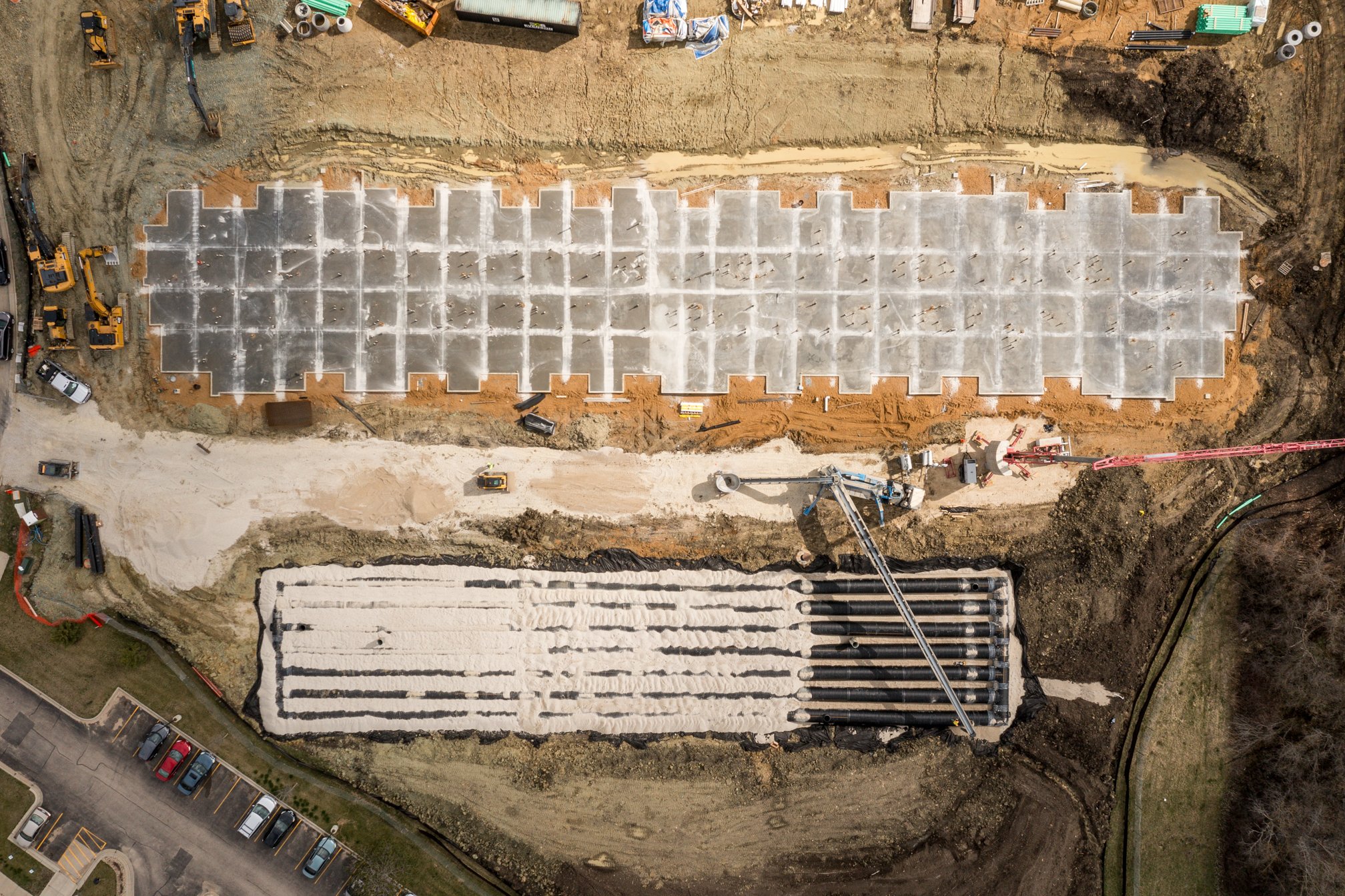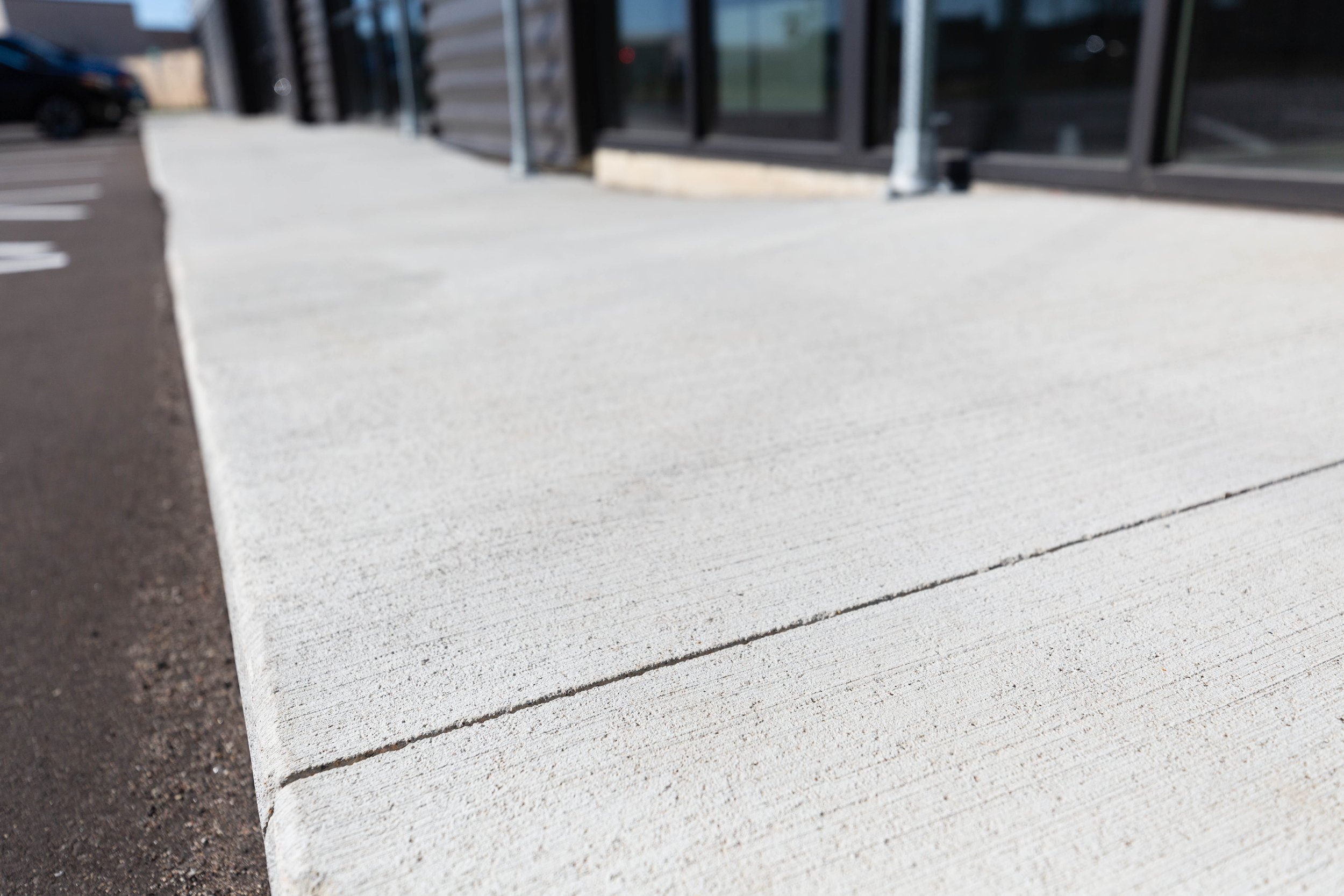The Ultimate Guide to Industrial Slabs: Strength, Durability, and Performance
When it comes to industrial and commercial construction, the foundation of success begins with a strong concrete slab. Whether it's a manufacturing plant, warehouse, or logistics center, the quality of your industrial slab is crucial for long-term durability and efficiency. At Evenson Concrete Systems, we specialize in designing and installing high-performance industrial slabs tailored to meet the demanding needs of modern industries.
In this guide, we’ll cover everything you need to know about industrial concrete slabs, from materials and design considerations to installation processes and long-term benefits.
Inside the blog:
The Industrial Slab Installation Process
Long-Term Benefits of High-Quality Industrial Slabs
Frequently Asked Questions (FAQs)
Contact Evenson Concrete Systems for Your Industrial Slab Needs
What Are Industrial Slabs?
An industrial slab is a reinforced concrete foundation designed to withstand heavy loads, high traffic, and extreme environmental conditions. Unlike standard residential slabs, industrial concrete slabs must be engineered to endure the demands of forklifts, machinery, and even chemical exposure.
Common applications for industrial concrete slabs include:
Warehouses and distribution centers
Manufacturing plants
Cold storage facilities
Aircraft hangars
Parking decks and logistics hubs
Heavy equipment storage areas
Each environment requires a unique approach to slab thickness, reinforcement, and finishing techniques to ensure long-term performance.
Key Factors in Industrial Slab Design
1. Load-Bearing Capacity
The most critical factor in designing an industrial slab is determining the expected load capacity. The weight of machinery, storage racks, and vehicle traffic must be calculated to ensure the slab can handle the stress without cracking or failing prematurely.
2. Reinforcement and Thickness
Depending on the application, industrial slabs typically range from 6 to 12 inches in thickness. Reinforcement methods include:
Rebar (reinforcing steel bars) for enhanced structural integrity
Wire mesh to control cracking
Fiber-reinforced concrete for additional durability
Post-tensioning systems to reduce slab movement and cracking
3. Concrete Mix and Strength
Choosing the right concrete mix is crucial for achieving the necessary compressive strength. Most industrial slabs require a minimum strength of 4,000 to 6,000 PSI (pounds per square inch), depending on the project’s specifications.
4. Joint Placement and Expansion Control
To prevent uncontrolled cracking, control joints and expansion joints must be strategically placed throughout the slab. These joints allow for natural expansion and contraction due to temperature changes, reducing the risk of structural damage over time.
5. Surface Finish and Coatings
Industrial environments demand different surface finishes based on usage:
Smooth finishes for high-traffic areas requiring ease of movement
Textured finishes for added slip resistance in wet or hazardous environments
Epoxy coatings to enhance durability and chemical resistance
Densifiers and sealers to prevent dusting and extend the slab’s lifespan
The Industrial Slab Installation Process
Step 1: Site Preparation
A solid foundation starts with proper site preparation, including:
Grading and compaction to ensure stability
Subbase preparation using gravel or crushed stone
Moisture control to prevent cracking due to excessive shrinkage
Step 2: Formwork and Reinforcement
Once the site is ready, formwork is installed to shape the slab, and reinforcement (rebar, mesh, or fiber) is placed to provide structural integrity.
Step 3: Concrete Pouring and Finishing
Concrete is poured using high-performance mix designs tailored for industrial applications. After pouring, the surface is leveled and finished according to project requirements.
Step 4: Curing and Joint Cutting
Proper curing ensures the concrete gains its full strength. Control joints are then cut to manage cracking and expansion.
Step 5: Sealing and Coating
Depending on the usage, additional coatings or sealers may be applied to protect against wear, moisture, and chemical exposure.
Versatility and Adaptability
At Evenson Concrete Systems, we bring decades of experience in industrial concrete solutions. Our team specializes in providing:
Custom-engineered industrial slabs tailored to your facility’s needs
Expert reinforcement techniques for maximum durability
Precision pouring and finishing to meet industry standards
Advanced curing and sealing processes for long-lasting performance
Commitment to safety, quality, and efficiency
Whether you're building a new warehouse, upgrading your factory floor, or expanding a logistics hub, our expertise ensures that your industrial slab will withstand the test of time.
Long-Term Benefits of High-Quality Industrial Slabs
Investing in a properly designed and installed industrial slab provides numerous benefits, including:
1. Increased Load Capacity
A well-engineered slab supports heavy equipment and storage systems, reducing maintenance and downtime.
2. Reduced Cracking and Repairs
By using high-quality materials and strategic joint placement, industrial slabs minimize the risk of cracks and costly repairs.
3. Improved Safety and Performance
Properly finished concrete surfaces provide a safe and efficient working environment, reducing accidents and operational disruptions.
4. Long-Term Cost Savings
With proper curing, sealing, and reinforcement, industrial slabs require less maintenance and last for decades, providing long-term cost savings for businesses.
Frequently Asked Questions (FAQs)
How thick should an industrial slab be?
The thickness of an industrial slab depends on its application but typically ranges between 6 to 12 inches. Heavier loads may require additional reinforcement.
What is the best concrete strength for industrial slabs?
Industrial slabs generally require a minimum concrete strength of 4,000 to 6,000 PSI for optimal performance and durability.
How do you prevent cracks in industrial slabs?
Cracking is controlled through proper joint placement, reinforcement, curing methods, and using a high-quality concrete mix with moisture control.
What type of finishing is best for warehouse floors?
A smooth or polished concrete finish is ideal for warehouses to facilitate easy movement of equipment. For wet environments, a textured or slip-resistant finish is recommended.
Contact Evenson Concrete Systems for Your Industrial Slab Needs
At Evenson Concrete Systems, we are committed to delivering high-quality industrial slabs that meet the demands of modern industries. Our team of experts is here to guide you through the process, ensuring durability, safety, and long-term performance.
Ready to start your industrial slab project? Contact us today for a consultation, and let’s build a foundation for success!


